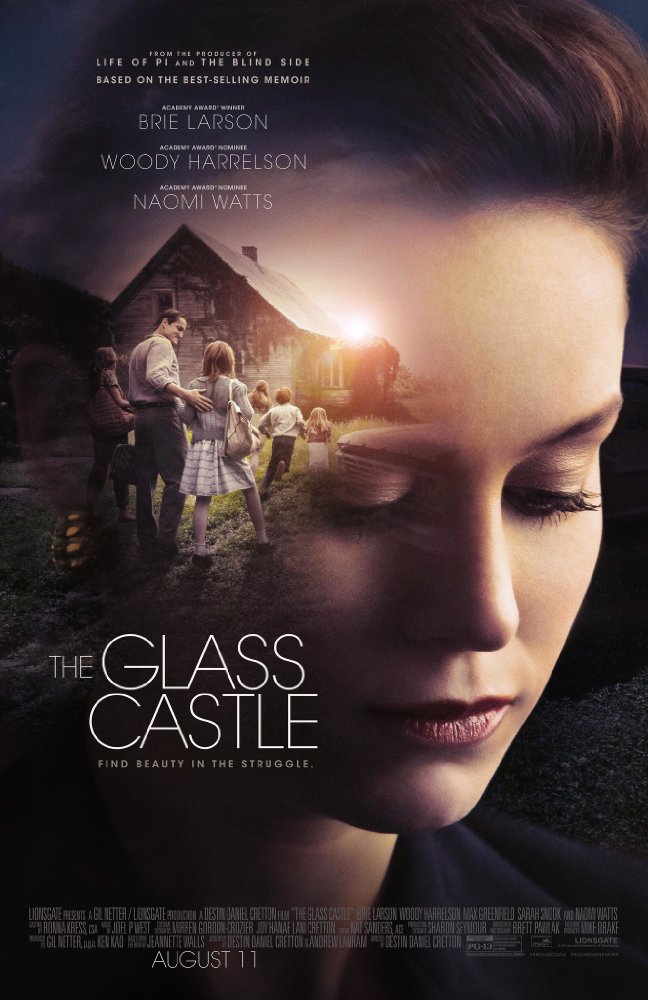 Every family has a “story,” but none like that of gossip columnist Jeannette Walls. Walls’s acclaimed memoir, “The Glass Castle,” which connected with millions of readers, unveiled the secret she’d long kept of her childhood: a gothic coming-of-age amid poverty, disaster, rebellion and estrangement from society.
Every family has a “story,” but none like that of gossip columnist Jeannette Walls. Walls’s acclaimed memoir, “The Glass Castle,” which connected with millions of readers, unveiled the secret she’d long kept of her childhood: a gothic coming-of-age amid poverty, disaster, rebellion and estrangement from society.
The most amazing about Walls’s harrowing book was is its sense of family love, vast and magical as her parents were strange and inexplicable.
It allowed Walls to turn her youth into an adventure, an empowering journey towards redemption. Careening from hunger and crisis to starlit nights of enchantment, Walls found all the light and darkness of the world.
The book was 7 years on the bestseller list, captivating readers with its gripping story of a nomadic clan living by their parents’ passionately held if reckless rules.
Walls was determined to survive, to get out and make her own life–but without letting go of the complicated affection she felt for two parents whose wildness was at once full of wonderment and a catastrophe.
Walls’s book was the opposite of a lurid tell-all. It was a love story full of cracked hearts, broken promises and unseen need, and also one that dug to the issue of how sustaining and transcendent love can be–no matter who you are.
The story unfolds as a fairy tale spanning from a life lived in cars and shacks to the heights of New York publishing. Co-screenwriter and director Destin Daniel Cretton, who broke out with the indie Short Term 12 , saw the story as
relatable by anyone who has been both troubled and enlivened by their family.
“Destin saw all the light, the happiness, the joy and the lessons,” Jeannette says. “He hasn’t whitewashed anything. He hasn’t left out the bad things. They’re all there. His script captured exactly what I tried to do with the book: to show the beauty and ugliness, the bright and dark of my childhood.”
Cretton’s affinity for the book: “When I read it, it felt incredibly personal to me, too. My upbringing was not as crazy as hers, but I related to her exploration of love and its many facets and the way that families can have both beautiful times, and difficult, scary times. It felt real and relatable and so cathartic. It’s one of those stories that makes you feel more connected and not so alone in the world.”
He and co-screenwriter Andrew Lanham also saw it as a story of highly successful, seemingly settled woman, the adult Jeannette, who must return to the muck and mire of her family history in order to reconcile her future. “We focused in on the idea of a young woman who is filing through her memories, trying to make sense of her life, and to make peace with the past and her parents. Ultimately, it is the story of a woman learning to love and accept herself,” says Cretton.
Cretton found Walls’s ability to openly wonder about her parents’ extreme behavior, yet still have overwhelming compassion for them, especially powerful, and something he had to underline. “Every page of Jeannette’s book shows another side of these incredibly complicated characters and their relationships to each other. One moment you’re falling in love with a character, but then they do something to make you hate them, and then you turn the page and love them again. It’s all so deeply human.”
For Walls, Cretton hit upon the idea she felt had to come out of any screenplay adaptation: that her family, disorderly and difficult as it might be, reflects as much as any our universal human urge to hold tight to our loved ones no matter how much it tests us.
Since publishing her book, she has found that more people than she even imagined took that to heart. “One the many blessings is that people not only get it, they sometimes get it even more than I do,” says Walls. “There are so many people out there with stories that, while not identical to mine, share something essential in common. In telling this story of both great hardships and great abundance, I not only reconnected with this childhood that I tried to pretend did not exist for a long time; I also connected with other people.”
Brie Larson:
Walls’s story hit home with is Oscar-winner Brie Larson (Best Actress, Room , 2015), who portrays her as a young woman in “The Glass Castle.” Says Larson: “This is a story about family, about how you become the person you are and about accepting the fact that people don’t always love you in the way you need but you can forgive them. It’s very rare to be able to watch someone like Jeannette move from childhood into adulthood, seeing all the missed connections and moments that were misunderstood, and then to see her have the chance to regain some of what was lost. I really wanted to do right by her and her story.”
At present, Walls feels even more strongly that the raw beauty of love can be found in nearly ever family, and every family has a story to tell. “Some people have accused me of being overly optimistic, but that’s how we survive our tough times, looking for the joy, because otherwise it might kill you,” she concludes. “That is why we tell stories. If we can share with one another the lessons of our survival–how on earth did you get through that?–then everyone feels they can get through it, too. If people leave the theaters thinking about their own family, I’ll be ecstatic.”










